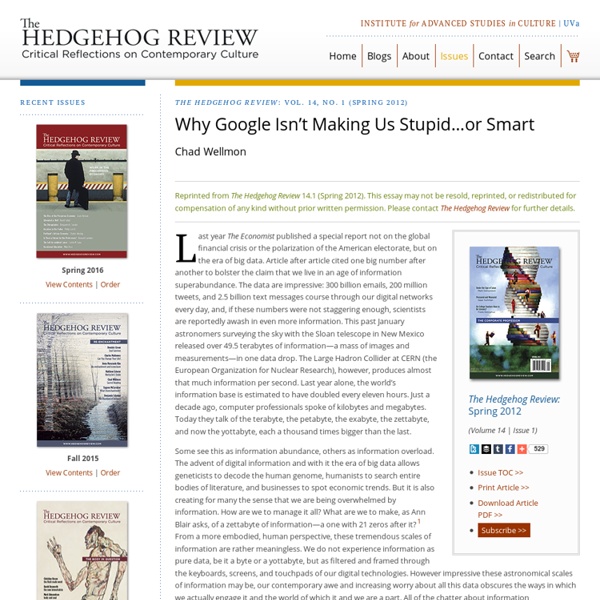IASC: The Hedgehog Review - Volume 14, No. 1 (Spring 2012) - Why Google Isn’t Making Us Stupid…or Smart - Chad Wellmon

Related:
Related:



